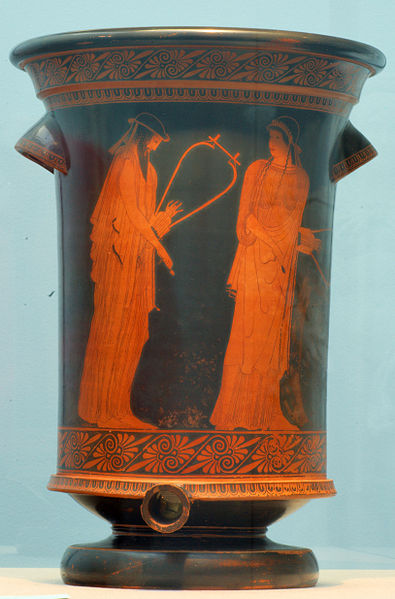Pindar was an Ancient Greek lyric poet from Thebes. Of the canonical nine lyric poets of ancient Greece, his work is the best preserved. Quintilian wrote, "Of the nine lyric poets, Pindar is by far the greatest, in virtue of his inspired magnificence, the beauty of his thoughts and figures, the rich exuberance of his language and matter, and his rolling flood of eloquence, characteristics which, as Horace rightly held, make him inimitable." His poems can also, however, seem difficult and even peculiar. The Athenian comic playwright Eupolis once remarked that they "are already reduced to silence by the disinclination of the multitude for elegant learning". Some scholars in the modern age also found his poetry perplexing, at least until the 1896 discovery of some poems by his rival Bacchylides; comparisons of their work showed that many of Pindar's idiosyncrasies are typical of archaic genres rather than of only the poet himself. His poetry, while admired by critics, still challenges the casual reader and his work is largely unread among the general public.

Pindar, Roman copy of Greek 5th century BC bust (Museo Archeologico Nazionale, Naples)
Enthroned Pindar with lyre, Muse and poetess. Antique fresco in Pompeii
A short Heracles: Pindar once ignored the traditional image of Heracles, the supreme example of the heroic physique, and described him as short in order to compare him with a short patron.
The so-called 'Farnese Diadumenos' is a Roman copy of a Greek original attributed to Polykleitos c. 440 BC, depicting an athlete tying a victory ribbon round his head.
Greek lyric is the body of lyric poetry written in dialects of Ancient Greek.
It is primarily associated with the early 7th to the early 5th centuries BC, sometimes called the "Lyric Age of Greece", but continued to be written into the Hellenistic and Imperial periods.
Alcaeus and Sappho (Brygos Painter, Attic red-figure kalathos, c. 470 BC)





